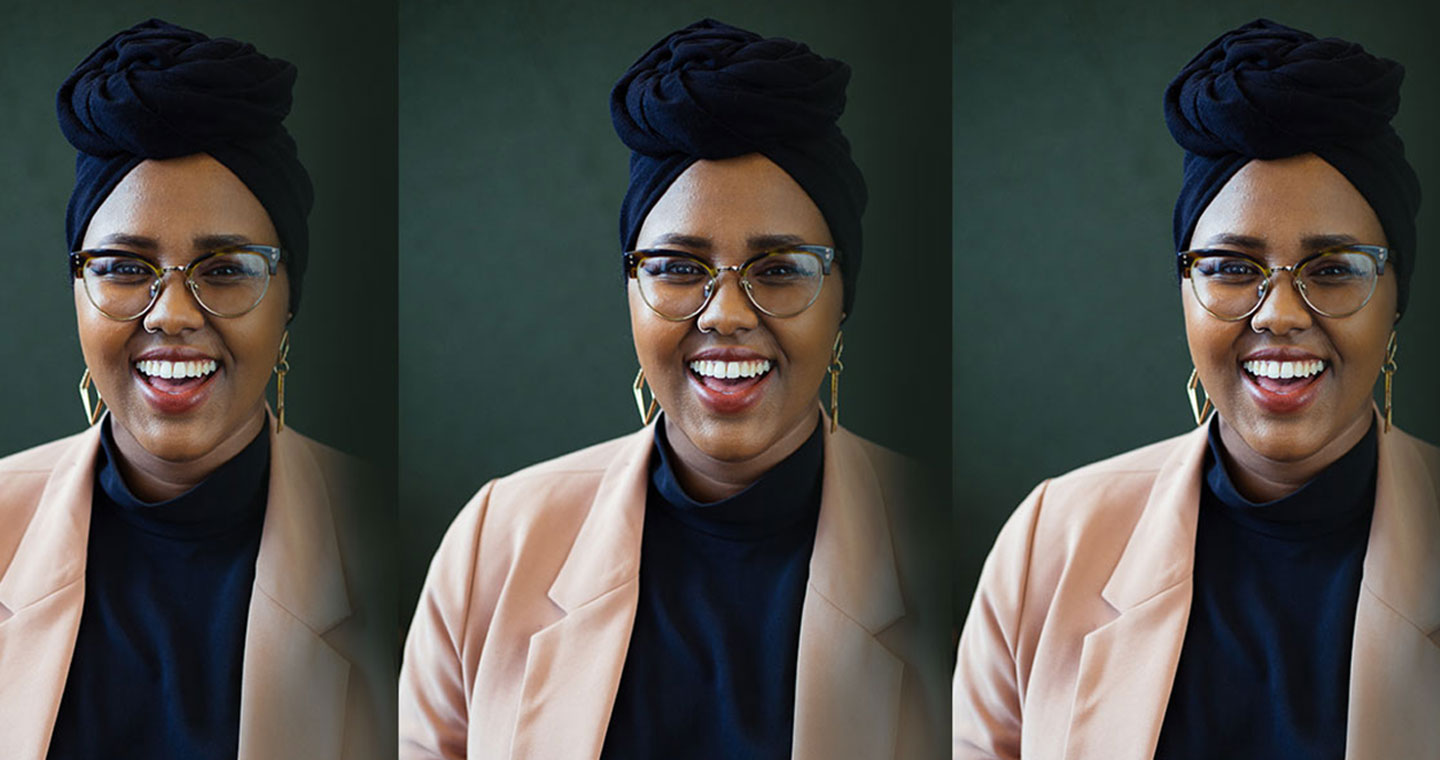Digital Justice Lab is a Toronto-based shared platform project at MakeWay. Led by Project Director Nasma Ahmed, Digital Justice Lab strives to create alternative digital futures that are rooted in equity and bring technology back to the people. The Lab holds events and training, engages in policy and legal intervention around digital issues, and partners with organizations on projects centred around digital topics and issues. The team is also set to begin an 11-month project with Trinity Square Video called Virtual Grounds, which will explore feminist perspectives on digital sustainability and survival.
By engaging with diverse communities and collaborating with stakeholders including technologists, policymakers, and community activists, the project helps to shape a better understanding of technology and its impact on communities across the country, supporting them in making informed decisions around digital issues.
What inspired Digital Justice Lab? How did it begin?

I was doing a lot of consulting work with non-profits in Canada and the US, and I noticed that, in the Canadian landscape, there weren’t a lot of organizations focusing on technology, and specifically how it relates to racial justice, equity, and power. These issues were part of a lot of the conversations I was having with prior clients. And so, in consultation with a bunch of people, we decided to experiment and see what it means to have these conversations—these really uncomfortable conversations—in a bigger way. And that’s how Digital Justice Lab started.
Why do you think it is important to build a more just and equitable future in the digital space?
No matter where we live or what we do, digital technologies are ingrained in almost every part of our work. I really do believe that communication is a human right, so it’s crucial to think through questions around how to ensure people have equal access to technology, have connected opportunities, and feel a sense of ownership – collective ownership. Right now, we talk about the digital divide and the lack of digital literacy. As technology is immersed in our daily lives there is a lot to be lost, but there is also a lot to be gained through that.
Digital Justice Lab looks at how to minimize the loss and maximize gain. We’re trying to figure out more effective ways to approach technology in a way that it’s not something that happens to you, but something that can be collaborative and beneficial. We also want people to have a critical understanding of where their data is going and who has access to what. It is so important to ground this topic in equity. We do this by being specific about who we partner with and who we get money from. Most of our partners are equity seeking groups or those that help advance this work. Our pedagogy and facilitation approaches are also grounded in anti-oppression and anti-racism. Technology’s presence is only expanding, so ensuring that justice and equity are a part of the equation allows us to imagine participatory solutions where consumers can take more of a lead.
Why did you join MakeWay’s Shared Platform?
We decided to join the shared platform because it holds space for us to experiment, which we really appreciate. I think it’s harder to take it slow and purposeful when you’re running an entire non-profit and there’s a lot more work to do. Being on a shared platform prevents us from scaling too fast and allows us to take it a bit easier by reducing some of the risk of failure. We weren’t sure if we were even interested in a non-profit model to begin. Joining MakeWay allows us to see what’s possible.
What are the main benefits of this model?
The first benefit is the resources and support that are available. The second benefit is the collective approach that’s taken to administrative work and resources because you have an entire admin team to support you. Third, I would say that when you’re in the place of experimentation, the shared platform model allows you to incubate in a really good way.
How might the digital landscape in Canada changing over the next few years?
There’s increasing public awareness around the issue of privacy, security, and surveillance, and the role big tech companies play in our lives. Over the next few years, if done well, there is a lot of opportunity for us to build stronger protection mechanisms and better policies that are grounded in what people value. Public awareness has improved over the years, and I believe that the landscape can shift, and I think Canada can be a leader in this space. It really does depend on who takes leadership, but I do think Canada has an opportunity to do so, especially internationally.
What advice would you give to other people who are thinking of starting a community-led project?
Go for it! If you feel like you have the supports in place, and if you can, just go for it. It’s really difficult, especially if your focus is quite massive, but the more projects we have, the better. We’re seeing the importance of collaboratives, community-led, and community-based organizations and projects. Always go for it. But I would also say to always question your intent and why you’re doing it. Always map out the “why.”
To learn more about Digital Justice Lab, click here.
To learn more about MakeWay’s Shared Platform, click here.
Digital Justice Lab is one of MakeWay’s over 60 shared platform projects. Our projects benefit from sharing important administrative resources and expertise. Learn more about the shared platform and how to join here. Learn more about Digital Justice Lab here.
